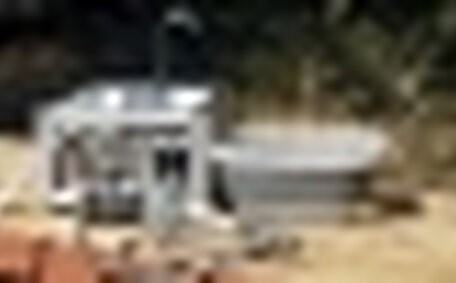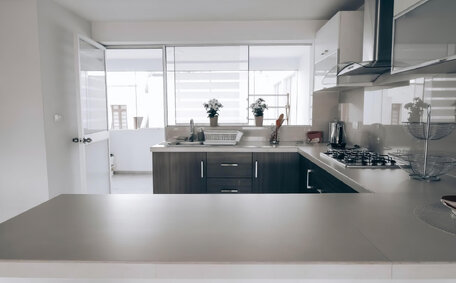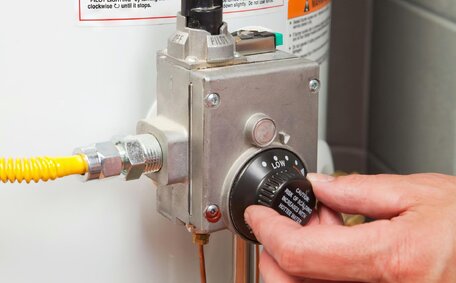Introduction to Landlord and Tenant Responsibilities for Blocked Drains
Determining responsibility for blocked drains in rental homes is crucial for their swift resolution, and clarity on whether this falls to the landlord or the tenant is essential.
Your tenancy agreement generally outlines maintenance duties for landlords and tenants. However, specific accountability for blocked drains may be vague. Although landlords are typically responsible for wastewater pipe maintenance, tenant neglect and misuse can contribute to issues.
This article will delve into the responsibilities concerning blocked drains within rental properties. We’ll look at factors like emergency repairs, negligence, proper usage, and steps for handling disputes. Grasping the dynamic between landlord and tenant in relation to plumbing issues and the role of plumbers is crucial for a well-maintained plumbing system.
Causes of Blocked Drains in Rental Properties
Blocked drains in rental properties commonly result from extensive use by multiple tenants. Common causes include:
- Buildup of hair, soap residue, and other debris - Shared bathroom facilities in rental properties are prone to hair and soap scum clogs due to multiple users.
- Food waste - Food particles washed down the kitchen sink or discarded improperly can accumulate and block pipes.
- Tree roots - When trees are planted too close to where the pipe located, their roots can intrude and disrupt the normal water flow.
- Hygiene products - Items such as cotton swabs and sanitary products that are inappropriately flushed down toilet facilities accumulate, leading to blockages.
- Grease and fat - Cooking oil and grease poured down sinks solidifies and coats pipe interiors.
- Foreign objects - Coins, toys, and other items accidentally dropped down drains lodge in pipes.
- Deteriorating pipes - Old and corroded drain lines are prone to obstructions and collapse.
- Improper installations - Incorrect slope or connections can impede drainage.
Preventative strategies, such as drain screens, regular maintenance, and correct waste disposal, can significantly reduce blockages in rental units. But with heavy use, obstructions are common. Understanding the causes allows quick identification and resolution of issues.
Preventing Blocked Drains in Rentals
As a tenant, it’s frequently your responsibility to take proactive steps to prevent blocked drains. Adopting good habits and correct waste disposal is key to avoiding blocked drains proactively.
Habits to Avoid Blocked Drains
- Use drain screens in showers and sinks to catch hair and debris.
- Dispose of cooking oils and fats properly, not down the drain, to avert harmful blockages.
- Place food scraps in compost or garbage bins, rather than risking a clog in your hot water sink system.
- Avoid flushing hygiene products like cotton swabs down toilets.
- Limit use of harsh chemicals that can damage pipes when washed down drains.
Regular Maintenance
Simple drain maintenance tasks can keep pipes clear of blockages:
- Pour 1 cup baking soda and 1 cup vinegar down sinks and drains monthly.
- Use a plunger or drain snake to remove minor obstructions.
- Have a licensed plumber inspect and clear pipes annually.
Heeding these tips can substantially reduce the incidence of serious blockages that necessitate professional plumbing repairs. While landlords maintain wastewater pipes, proactive tenants can prevent many issues from arising. Pre-emptive measures ensure the unimpeded flow of drains.
Use drain screens in showers and sinks to catch hair and debris.Landlord Responsibilities for Blocked Drains
This includes addressing any blocked drain dilemmas that arise during a tenancy, as per the directives that the local council can provide.
Under tenancy laws, landlords are required to provide functional plumbing and sanitary systems at the start of a lease, which is crucial for tenants facing these issues initially. Any known faults or risks, like tree roots growing near drainage pipes, must be addressed before tenants move in.
Landlords have the responsibility fix issues like a burst pipe, blocked drains, and other plumbing concerns during a tenancy. Exceptions exist for damages resulting from tenant negligence; however, landlords bear the burden of proof in such situations.
In events requiring emergency plumbing repairs, tenants should notify landlords immediately. Leaving issues like sewage leaks risks further property damage and potential health hazards. Landlords are obligated to arrange qualified plumbers, adhering to Sydney Water standards, to undertake urgent repairs promptly.
For minor blockages, where landlords are responsible for blocked issues, they may suggest tenants request a professional to come out or try drain clearing with tools like plungers or drain snakes initially. However, for major obstructions or repeated problems, a licenced plumber should be engaged to inspect where blockage originates and rectify underlying causes.
Despite tenants’ duty of care regarding responsible drain usage, landlords still have the overarching responsibility for maintaining functional wastewater systems. Establishing clear procedures for managing blocked drains is key to prompt resolution of issues.
Tenant Responsibilities for Blocked Drains
This includes blocking drains by pouring fat or oil down sinks, flushing inappropriate items down toilets, or disposing food waste improperly.
If the landlord can prove the tenants actions directly caused the blockage, the tenant may be liable for repair costs. Nonetheless, issues of wear and tear are the responsibility of the landlord to address.
It’s essential to immediately inform your landlord’s attention of any plumbing problems like blocked drains or leaks. Consulting a professional is crucial and preferable to DIY attempts, which may worsen the situation. Delayed reporting of problems can also impact responsibility.
While urgent repairs are the property owner responsible’s duty, tenants can attempt clearing minor blockages carefully using a plunger or drain snake. Avoiding use of affected drains once an issue is noticed helps prevent further issues arising.
With proper usage and prompt notification of issues, tenants can uphold their obligations around plumbing maintenance. But liability for repairs still lies predominantly with the property owner, outside tenant negligence.
Tenancy laws dictate that tenants must steer clear of causing damage to rental properties through improper use.
Should the cause of a blockage be unclear, tenants are advised to formally request repairs in writing to avoid potential liability for the costs. Be sure to keep all receipts to ensure you do not incur extra expenses when seeking reimbursement from the landlord.
For ongoing disputes regarding liability, seeking mediation from a tenancy tribunal or fair trading organisation can be beneficial.
Constructive communication, adherence to property care, and timely engagement of qualified plumbers typically resolve drain disputes effectively. Knowledge of each party’s obligations is fundamental for those addressing plumbing issues.
When to Call a Professional Plumber for a Blocked Drain
Blocked drains can rapidly escalate from a mere inconvenience to an emergency. Calling a professional plumber promptly is crucial to prevent a blocked drain from worsening and causing extensive damage.
Indicators for enlisting a professional plumber encompass:
- Water overflowing from sinks, tubs or toilets
- Gurgling sounds coming from drains
- Sewage odours arising from drains
- Pooling water near floor drains
- Fixtures that drain slowly or are entirely blocked
DIY drain clearing without expertise can aggravate the problem, necessitating professional intervention. Tree roots, grease build-up and collapsed pipes require specialised tools and expertise.
Professional plumbers are equipped with the necessary skills and tools to swiftly clear blocked drains and diagnose underlying problems. They are proficient in fixing blocked pipes using cameras to inspect, hydro jetting to remove blockages, and taking measures to avert future issues.
For prompt and reliable emergency drain cleaning, our expert team is available for assistance. Our team is highly skilled, available around the clock, ensuring blocked drains are addressed promptly to prevent health hazards and water damage.
Our mission is to prevent blocked drains from escalating into costly catastrophes with expert plumbing services. Engage our professional team swiftly at the initial indication of a blockage for timely remedies.
Conclusion and Key Takeaways
In summary, while landlords hold primary legal responsibility for maintaining drainage systems, tenants also have obligations to avoid misuse and promptly report issues. Blocked drains are often caused by buildup of hair, grease, tree roots or foreign objects in shared rental facilities. Preventative habits like drain screens and proper waste disposal can reduce risks.
Should a blockage occur, it is imperative for tenants to promptly notify landlords to organise repairs. For minor issues, tenants can attempt no-fuss basic drain clearing; however, for serious or recurrent obstructions, it’s vital to promptly call licensed plumbing professionals. Urgent leaks or overflows require high quality emergency servicing.
Disputes over liability can be mediated through tenancy tribunals if communication fails. Documenting problems and hiring professionals when landlords neglect duties can aid resolution. Overall, cooperation and quick response are vital to keep rental plumbing running smoothly.
Our services are available at all times to diagnose and prevent costly water damage from blocked drains.






